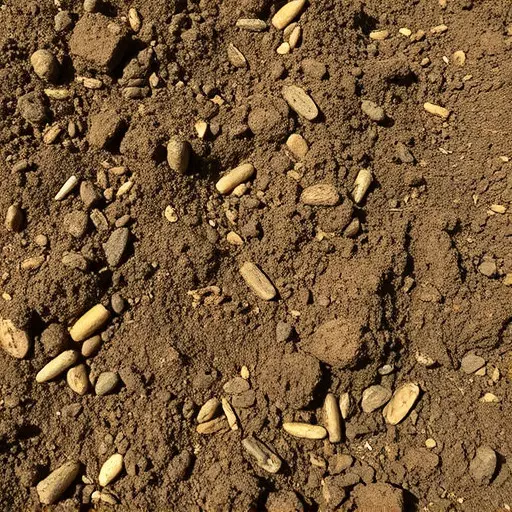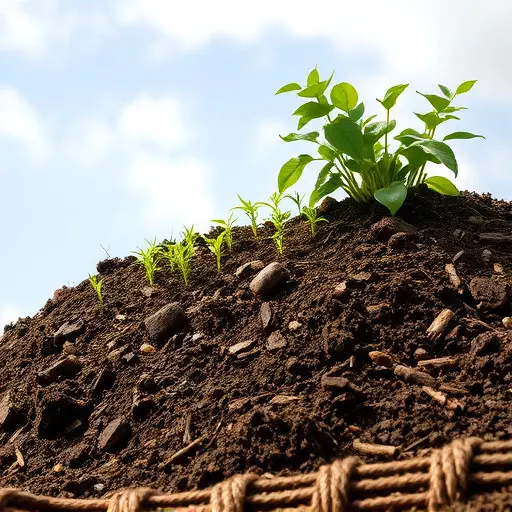Urban areas like Toledo face environmental challenges due to impervious surfaces that hinder stormwater absorption, leading to polluted water bodies and harm to local ecosystems. Topsoil recycling services emerge as a game-changer by transforming organic waste (yard trimmings, food scraps) into nutrient-rich topsoil, effectively managing stormwater, promoting soil health, reducing landfill strain, and fostering a circular economy. This innovative approach enhances groundwater infiltration, supports biodiversity, and contributes to Toledo's sustainability goals through efficient organic waste management and soil restoration techniques.
In the face of escalating environmental challenges, effective stormwater management is crucial for preserving local ecosystems. This article delves into innovative solutions centered around topsoil recycling and its potential to mitigate stormwater issues. We explore how organic waste recycling contributes to healthier soils and outlines the benefits of utilizing recycled topsoil in stormwater management practices. Specifically, we focus on the availability of topsoil recycling services in Toledo, highlighting their role in fostering sustainable soil restoration through organic waste recycling.
- Understanding Stormwater and Its Impact on Local Ecosystems
- The Role of Topsoil Recycling in Mitigating Stormwater Issues
- How Organic Waste Recycling Contributes to Healthy Soils
- Benefits of Using Recycled Topsoil for Stormwater Management
- Exploring Topsoil Recycling Services in Toledo: A Sustainable Approach
Understanding Stormwater and Its Impact on Local Ecosystems
Stormwater, a natural occurrence vital to local ecosystems, refers to the water that flows across land surfaces during and after rainfall events. As it moves, it picks up and carries away various pollutants and sediments, which can significantly impact nearby rivers, lakes, and groundwater. In urban areas, this phenomenon is particularly concerning due to the increased use of impervious surfaces like concrete and asphalt, which reduce the soil’s natural absorption capacity.
This water, often laden with contaminants such as heavy metals, chemicals, and organic waste from these surfaces, directly contributes to the degradation of local ecosystems. The impact extends to both aquatic and terrestrial life, making effective stormwater management crucial. One innovative approach gaining traction is the utilization of recycled topsoil, a service offered by many Toledo-based companies specializing in soil restoration and organic waste recycling.
The Role of Topsoil Recycling in Mitigating Stormwater Issues
Topsoil recycling plays a pivotal role in addressing stormwater management challenges, especially in urban areas like Toledo. By repurposing organic waste and transforming it into nutrient-rich topsoil, these services not only mitigate soil erosion but also contribute to a more sustainable environment. The process involves collecting, processing, and screening organic materials such as yard trimmings, food scraps, and construction debris, which are then turned into high-quality topsoil suitable for various applications.
This eco-friendly approach offers numerous benefits, including reducing the strain on traditional waste disposal methods and fostering a circular economy. The restored soil can be utilized in landscaping projects, park renovations, and even road construction, enhancing groundwater infiltration and supporting local ecosystems. With growing awareness about environmental conservation, topsoil recycling services in Toledo are gaining traction as an innovative solution to stormwater issues while promoting the responsible management of organic waste.
How Organic Waste Recycling Contributes to Healthy Soils
Organic waste recycling plays a pivotal role in enhancing soil health and fertility, which is particularly significant in urban areas like Toledo where topsoil recycling services are in high demand. By transforming organic materials such as food scraps, yard trimmings, and manure into nutrient-rich compost, these recycling processes contribute to the creation of healthy soil. This not only supports plant growth but also helps to mitigate stormwater runoff issues that often plague urban environments.
Soil restoration through organic waste recycling offers a sustainable solution for several environmental challenges. It reduces the amount of organic matter ending up in landfills, where it contributes to greenhouse gas emissions. Instead, these materials are transformed into a valuable resource, improving soil structure and promoting biodiversity. As a result, recycled topsoil enhances water retention, reducing the risk of flooding during heavy storms while ensuring better drainage overall.
Benefits of Using Recycled Topsoil for Stormwater Management
Using recycled topsoil for stormwater management offers a sustainable and eco-friendly solution to various environmental challenges. The process involves transforming organic waste, such as construction site debris and landscape material, into nutrient-rich soil, which is then utilized to improve water quality and infiltration. In areas like Toledo where topsoil recycling services are readily available, this approach not only reduces the amount of waste ending up in landfills but also promotes soil restoration.
Recycled topsoil enhances stormwater management by increasing the capacity of natural systems to absorb and filter rainwater. This helps mitigate the effects of urban runoff, reducing pollution levels in local waterways. Moreover, organic waste recycling contributes to a circular economy by turning what was once considered waste into valuable resources for landscaping and construction projects. As a result, soil fertility is improved, supporting plant growth and biodiversity while ensuring effective stormwater treatment.
Exploring Topsoil Recycling Services in Toledo: A Sustainable Approach
In Toledo, exploring topsoil recycling services is a sustainable approach that holds immense potential for soil restoration and environmental conservation. With an increasing focus on organic waste recycling, these services play a pivotal role in reducing landfill strain and mitigating the impact of non-biodegradable materials on local ecosystems. By transforming organic waste into nutrient-rich topsoil, Toledo can foster healthier landscapes and support robust urban greenery.
Topsoil recycling initiatives offer a circular solution by collecting organic materials from municipal solid waste streams, such as food scraps and yard trimmings, and processing them through advanced composting techniques. The resulting product is not merely soil but a vibrant, ecologically sound alternative that enriches the region’s agricultural and horticultural practices. This approach not only beautifies public spaces and private gardens but also contributes to Toledo’s overall sustainability goals by promoting native plant growth and reducing the need for synthetic fertilizers.


